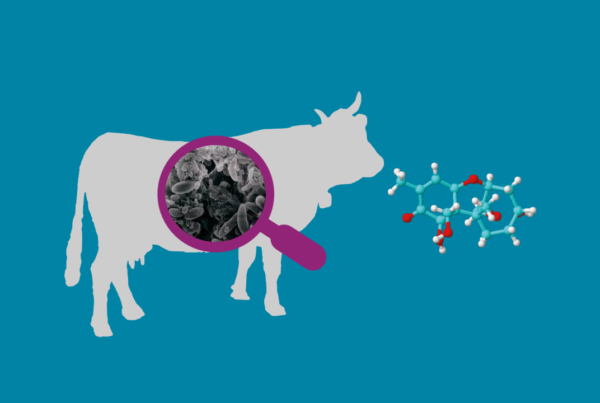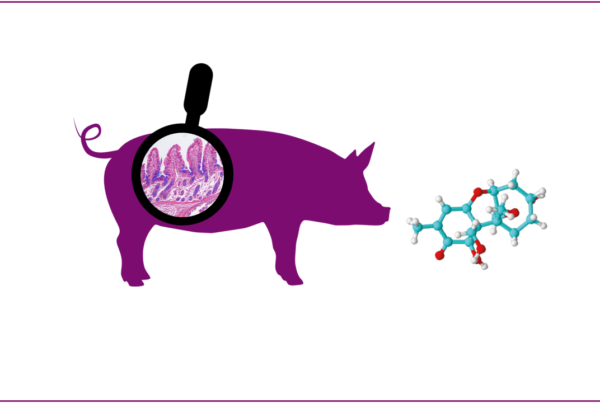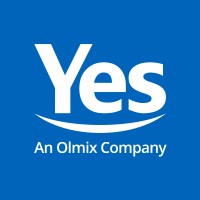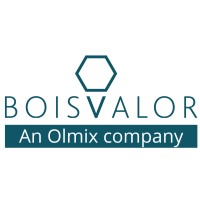Pig producers are seeking alternatives to face the antimicrobial resistance challenge.
Scientists are all in agreement through numerous reports and articles that antimicrobial resistance is today one of the main threats to animal and human health. Many countries in Asia are moving forward, implementing new regulations aiming to reduce the use of antibiotics in animal production. In this context, many “alternatives” to antibiotics are being developed and tested. Among them, the use of algae is very promising.
Economical performances are strongly correlated with piglet performance in farrowing and post-weaning units. The farrowing unit performances have an impact on the long term pig farm profitability. The current pig production is a constant challenge. The number of piglets per sow have increased these last years and can lead to an inadequate colostrum intake. Moreover, the age at weaning decreased that can conduct to a risk of por digestive tract adaptation. Therefore, it is important to support the piglet digestive tract development to have fewer digestive troubles in the farrowing unit, and better performance.

Pig farm.
Algae extracts for the management of sows
Hepatic disorders are common in sows around farrowing, often resulting from a negative energy balance due to the high demand in energy for piglets’ growth and milk production. The negative energy balance affects glucose production impacting lipid metabolism in hepatocytes and lead to fat accumulation in the liver. Changes in lipid metabolism as hepatic steatosis decrease the appetite of sows, reduce milk production and affect piglets’ livability and vitality. Overall, the poor liver status affects sows’ performance and farm productivity.
To manage such effects, feeding strategy adaptations (higher palatability, feeding time favoring higher feed intake) can be accompanied by the support of hepatic metabolism with specific products. A scientific article shows the capacity of algal polysaccharides to improve liver metabolism. It was also highlighted ulvans (MSP®s from green algae Ulva sp) anti-hyperlipidemic properties . Based on this, Olmix has worked on the extraction of a specific MSP® with enhanced anti-hyperlipidemic properties: the MSP®LIPIDS.
Field trials conducted in Vietnam with MSP®LIPIDS
The MSP®LIPIDS allows a liver metabolism reactivation. MSP®LIPIDS is commercially available in DigestSea®. In a recent trial carried out in Vietnam, DigestSea® showed outstanding results:
- 22 litters: 11 litters in DigestSea® group and 11 litters in control group.
- This trial demonstrated that DigestSea® administration for 5 days before farrowing (15 mL/sow/day) improved sows feed intake.
- As a result, birth weight of piglets was increased (+9% compared to control) and average weight gain was improved, resulting in higher weaning weight (see figure 1).
- Piglets were stronger, showing lower diarrhea incidence. Moreover both, runt and mortality rates were reduces.

Another MSP® was extracted and patented by Olmix, for its immunomodulating properties. This algal polysaccharide, named MSP®IMMUNITY was the subject of several studies conducted by the French National Institute of Agronomic Research. Tested in vitro, MSP®IMMUNITY stimulated the expression of many immune mediators, via the activation of Toll-like Receptors (TLR). The diversity of cytokines and chemokines that were up-regulated by MSP®IMMUNITY suggests that the algae extract modulates both cellular-mediated and humoral immune pathways, involved either in innate (macrophages, neutrophils) or adaptive (T and B lymphocytes) immunity.
MSP®IMMUNITY is included in a commercial product name Searup®. Searup® is used around vaccination to increase vaccine intake and before farrowing to improve immune transfer. Because sows possess a placenta which is impermeable to immunoglobulins causing piglet immunologically underdeveloped status at birth, it is important to improve colostrum contents in antibodies. The colostrum provides young piglets maternal serum antibodies derived from the antigenic stimulation of the maternal systemic immunity. Therefore, the ingestion of colostrum during the first hours of life determine the piglet survival.

MSP®IMMUNITY activates the expression of several cytokines involved in the activation, recruitment and migration of natural killer cells, as well as macrophages (involving in the defense against the viral infection) and may constitute a modulating agent to improve both innate and adaptive immunity.
MSP®IMMUNITY capacity to activate the humoral immune response was studied via the transfer of immunoglobulins from gilts to piglets in both colostrum and milk. In the trial, gilts were orally supplemented with MSP®IMMUNITY around vaccination against atrophic rhinitis and prior to farrowing. The transfer of immunity was evaluated by the measurement of IgG anti-Bordetella bronchiseptica (AB) levels in gilts ’serum and colostrum and IgA level in the milk. The results showed that MSP®IMMUNITY has the capacity to increase the amount of IgG-AB (anti-Bordetella, marker of atrophic rhinitis vaccination) in the colostrum via an increased transudation from the serum.
The study also demonstrated an improvement of the lactogenic immunity via the increase of the IgA levels, at day 7 and day 21 after farrowing. The lactogenic immunity derives from antigenic stimulation of mucosal associated lymphoid tissue (MALT) in the gut. Thus, MSP®IMMUNITY may be activating the migration of IgA producing plasma cells from the inductive site in the gut to the mammary gland, leading to the increased IgA in milk.
Trial results with Searup®
Another trial was conducted on 18 batches (total of 633 sows) in France to identify the effect of Searup on the farrowing unit performances and weaning results.
- The results have shown a better number of live born piglet (Searup®: 15.26 VS Control: 14.92) and a decrease in piglet mortality at 7 days old (see figure 2).
- The number of still born piglets was reduced by -9%. Searup® administration increased the number of weaned piglets (+0.46) and the weight per litter at weaning (+2.32 kg / litter).
- These results led to a better economic performance + 3.80 € of net benefit per litter (Searup® cost included).

Farmer testimonies characterize the Searup® as a product allowing a faster recovery, decrease in mortality and an improvement of homogeneity.
Algae extracts for the piglet’s management in farrowing unit and at post-weaning
Other MSP®s have an action of the mucin in the gut by the intestinal epithelium. Intestinal mucins are secreted by the goblet cells in the intestine. They constitute the mucus gel that coats the intestinal epithelium and protect it. The mucus layer prevents the attachment and colonization of bacteria on the mucosa and reduces the intestinal absorption of toxins. Therefore, stimulating the production of mucin in order to protect the intestine turns out to be a relevant strategy to support intestinal development of young piglets and to reduce digestive disorders.
One of these MSP®’s was called MSP®MUCIN. Tested in vitro, MSP®MUCIN stimulated different types of mucin even through the inflammation of the intestinal mucosa. From this, Olmix has developed a full range of products to support digestive welfare in animals, relying on its MSP®MUCIN, which stimulates the production of mucin by goblet cells and in so doing reinforces the intestinal mucus layer.
MSP®MUCIN is present in Olmix product, SeaGut® Paste, in association with micronized clay to protect the digestive tract during neonatal diarrhea (see picture 1). The efficacy of SeaGut® Paste was assessed in different countries (Vietnam, France, Italy, Ireland, Denmark, Spain) within different managements techniques. In average, in 84% of the litters, SeaGut® Paste was able to control digestive problems by itself (without antibiotic). Moreover, one single application of SeaGut® Paste was effective to stop neonatal digestive troubles in 70% of cases. All in all, SeaGut® Paste proves to be an efficient tool to support digestive welfare of neonatal piglets and can be used in the

Administration of SeaGut® Paste with a dosing gun
Algae extracts for the weaning management
Early weaning conducted in some modern pig farm can impact the piglet immunity. In fact, around weaning the piglet immunity is challenged by several stress as feed transition, transfer and allotting. Moreover, during weaning the antibodies production decreases.
Improving the antibody response to vaccine is a fundamental key point of weaning unit. Immunomodulating properties of Searup® is a good solution to support the immunity of the piglet through weaning. During the weaning period, weaner often shows a slowdown in growth and a high morbidity.
The efficacy of Searup® was evaluated within a commercial trial in the post-weaning on 12 batches of 30 piglets weaned at 28 days old and vaccinated for PCV2 at 42 days old. These piglets were divided in 2 groups. The MSP®IMMUNITY was administrated during 3 consecutive days at weaning, around PCV2 vaccination (1 day before and 2 days after) and 1 day per week during 4 consecutive weeks after the vaccination. Incidences of respiratory and lameness disorders were significantly decreased in the MSP®IMMUNITY group (see figure 3). MSP®IMMUNITY improved antibodies persistence. Homogeneity was improved by 16% at three weeks after vaccination in the MSP®IMMUNITY group.





